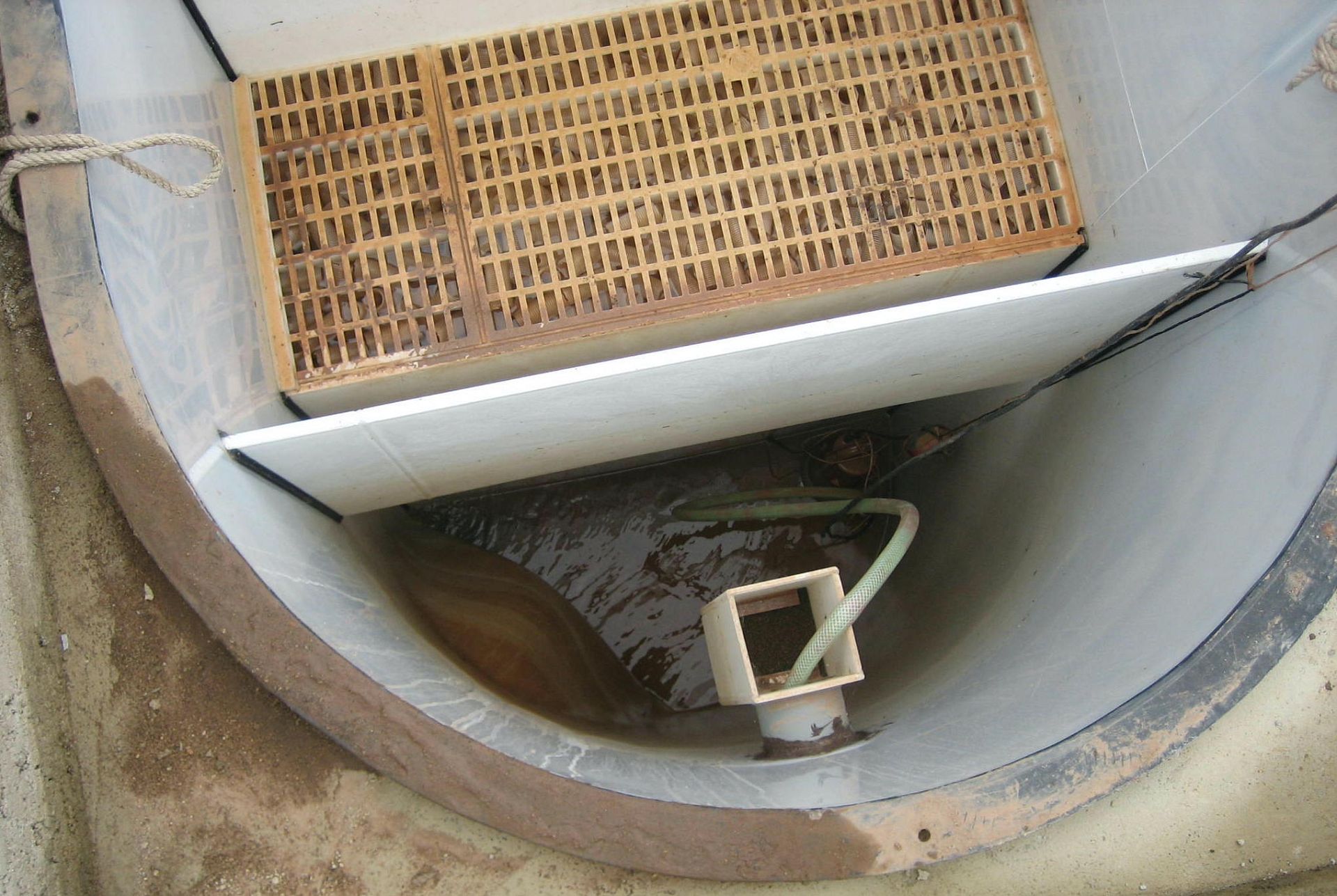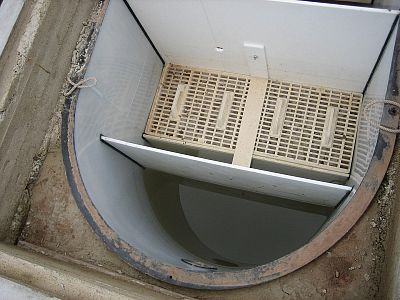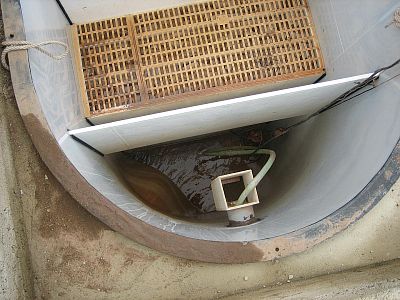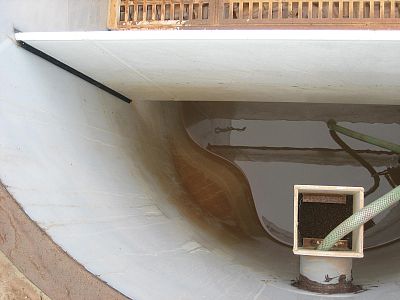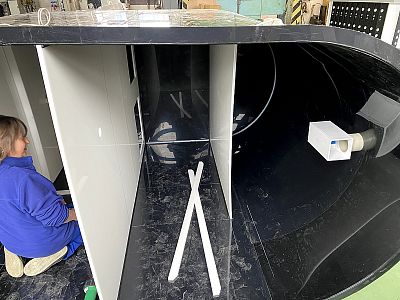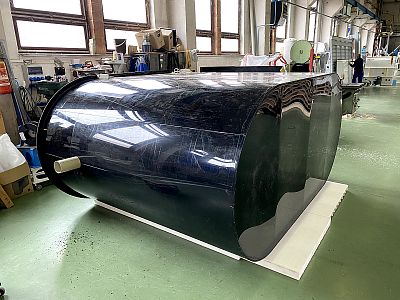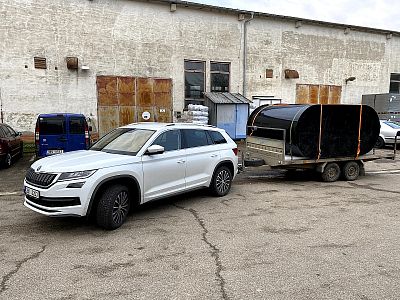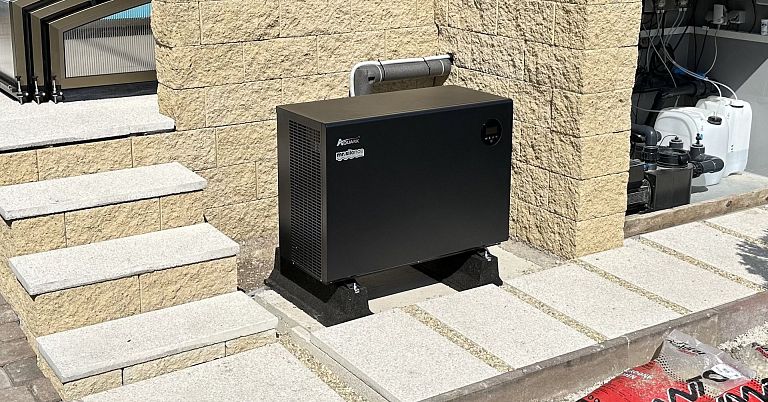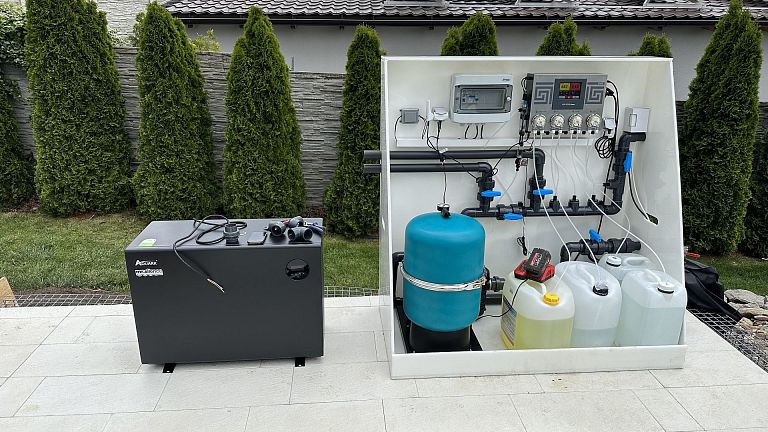The BIO-S 0.5 domestic sewage treatment plant for cottages and cottages is mechanical-biological, packaged and all-plastic. It is designed for 1-3 persons. It is especially used for the treatment of sewage arising from small sources of pollution in places where, due to their location or for other reasons, wastewater cannot be connected to a central wastewater treatment plant.
Domestic sewage treatment plants for cottages and cottages of the BIO-S series are also suitable for combination with a ground and sand filter or a root treatment plant.
Description and functions of the BIO-S 0.5
The basis of the BIO-S 0.5 wastewater treatment plant consists of an all-plastic tank with three functional compartments - a settling and dosing compartment, an anaerobic reactor. All parts of the treatment plant are made of integral polypropylene. The tank is closed with a lid made of UV-resistant polypropylene plates. The lid is fitted with inspection hatches. The cover is not permeable.
How the domestic sewage treatment plant works
The technology of wastewater treatment is based on anaerobic processes where organic substances are removed by the action of micro-organisms. The advantages of anaerobic wastewater treatment include low operating costs and the possibility of intermittent operation, which suits use in cottages and cottages.
The microbial colonisation that grows on the granular surface of the biofilter gradually reduces the organic content of the wastewater. Microbial decomposition of organic pollution takes place without access to air oxygen and is an intensification of natural processes occurring spontaneously at the bottom of lakes and ponds.
The raw wastewater flows into the plant from the sewer through the inlet (1) into the first settling section (2), where light and floatable particles are separated. The settled coarse impurities are anaerobically stabilised. The resulting primary sludge is thickened and stored at the bottom of the settling tank. The settling chamber includes a bore wall and a check valve (3) which serves to de-sludge the anaerobic reactor. The valve is positioned so that a layer of sludge (approx. 30 cm) remains in the reactor for inoculation of the WWTP after dewatering. The non-return valve is activated automatically when the sludge is removed and the water level in the settling tank is lowered.
The pretreated water is fed evenly through a distribution spillway (4) into the anaerobic hybrid reactor (5). The design is a vertically flowing column with a sludge cloud at the bottom and a biosolids charge at the top. The biosolids charge consists of PP rings which are placed in removable baskets (6). The packing serves as a carrier for the active biomass, which helps to retain the biomass in the reactor and also serves as a biomass separator creating favourable conditions for sludge granulation in the lower part of the reactor.
The water from the reactor flows out with the dead organisms into the settling section (7) where the flocculent material is separated from the water by simple sedimentation. The anaerobically stabilised sludge from the settling and sedimentation tank is removed once every 1-2 years by fecal truck. The water from the settling tank flows through a gravel filter (8) collecting the floated sludge on the surface via a PP pipe ( 9) to the sewer.

The high proportion of biomass on the carriers allows a high self-regulating capacity of the plant, which is favourable under shock loads. In the event of increased demands on the effluent concentration, microbial preparations can be dosed into the treatment plant to support the biological processes of organic pollution degradation. The efficiency on BOD5 is increased by 5-10 %. Dosed bacteria die naturally after nutrients have been disposed of and therefore regular dosing is necessary.
The appropriate type of preparation can be consulted with the supplier. These are commonly commercially supplied microbial preparations approved by the State Institute of Health and the Ministry of Health of the Czech Republic (e.g. lato apd - 900, cpl - 50 g).
Where to use the BIO-S 0.5 wastewater treatment plant
Domestic sewage treatment plants for cottages and cottages BIO-S 0,5, BIO-S 1 and BIO-S 1,5 for anaerobic treatment of sewage are used for residential sites, farms and small recreational facilities with weekend operation and capacity of 2-10 equivalent persons (for 1 EO it is considered with BOD5 value 60 g/day and wastewater quantity 150 l/day).
The initial basis for the actual design and location of the WWTP are the requirements of investors, planning authorities and water authorities.
Technical data of the BIO-S 0,5 treatment plant
The inlet for connection to the sewerage system is made with a PP pipe DN 160/140 mm, the outlet with a pipe DN 110/90 mm. For proper operation, the WWTP must be designed with regard to the maximum flow rate and the total material load. At the maximum substance and hydraulic load, the BOD5 value at the outlet is up to 45 mg/l.
| Parameter | BIO-S 0,5 |
| Dimensions (L x B x H) [mm] | 1 600 x 1 000 x 2 000 |
| Weight [kg] | 250 |
| Qd [m3/d] | 0,45 |
| Substance load [kgBSK5/d] | 0,18 |
| Biofilter volume [m3] | 0,36 |
| Biofilter area [m2] | 72 |
| Volume of settling tank [m3] | 0,5 |
| Volume of AN reactor [m3] | 0,95 |
| Volume of settling tank [m3] | 0,4 |
| Inflow [mm] | 1 750 |
| Outflow [mm] | 1 600 |
| Number of connected EOs | 1-3 |
| BOD5 efficiency [%] | 89 |








